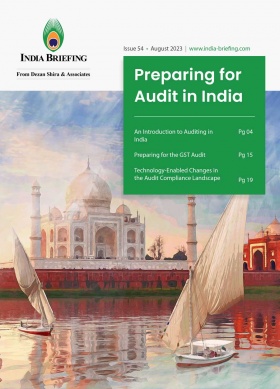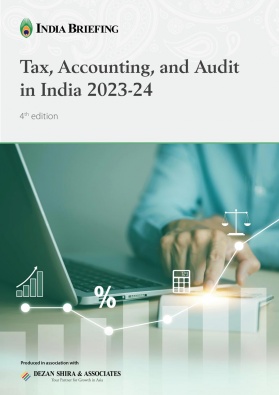Important Financial Changes in India Effective October 2023: Impact on Businesses
From October 2023, India is set to undergo significant financial changes that will impact businesses and individuals alike. These include revised Tax Collected at Source (TCS) rules affecting expenditures, new options for selecting debit and credit card networks, the elimination of perpetual Systematic Investment Plans (SIPs), and an extended deadline for exchanging or depositing 2,000 rupee notes.
Staying informed about these developments is crucial for effective financial planning and compliance. This article provides an overview of these changes and their implications for the Indian financial landscape. For more information and financial planning support in India, you may contact us by emailing at india@dezshira.com.
Webinar – Navigating Global Minimum Tax in Asia: Insights for Businesses
Thursday, November 16, 2023 | 9:00 AM San Francisco / 12:00 PM New York / 6:00 PM Brussels / 1:00 AM (Nov. 17th) Beijing
Partner Kyle Freeman will introduce how key Asian economies are implementing the new changes, how companies are going to be impacted by the OECD’s global minimum tax framework, and what businesses should be doing to be prepared.
Join us in this free webinar.
TCS rule modification from October 1, 2023
Commencing on October 1, 2023, the revised Tax Collected at Source (TCS) rates will come into effect, necessitating attention from businesses. TCS will be applicable if expenditure surpasses a specific threshold during a fiscal year, regardless of the nature of the transaction—be it a foreign trip, international remittances, investments in foreign assets, mutual funds or cryptocurrencies, or educational expenses abroad.
Under the Reserve Bank of India’s (RBI) Liberalized Remittance Scheme (LRS), individuals can send up to US$250,000 annually. However, from October 1, 2023, a TCS of 20 percent will be imposed on international remittances exceeding INR 700,000 (US$8430.18) within a fiscal year, excluding medical and educational expenses.
For more information, read our detailed analysis here: Taxation of India’s Outbound Remittances: LRS Scheme and Increased Tax Rate from October 1
Webinar – Navigating Global Minimum Tax in Asia: Insights for Businesses
Thursday, November 16, 2023 | 9:00 AM San Francisco / 12:00 PM New York / 6:00 PM Brussels / 1:00 AM (Nov. 17th) Beijing
Partner Kyle Freeman will introduce how key Asian economies are implementing the new changes, how companies are going to be impacted by the OECD’s global minimum tax framework, and what businesses should be doing to be prepared.
Join us in this free webinar.
New debit and credit card rules from October 1, 2023
The RBI has put forth a proposal suggesting that individuals who hold debit cards, credit cards, or prepaid cards should have the opportunity to choose their card network provider. This new regulation is scheduled to be implemented from October 1, 2023.
Currently, when a user applies for a debit or credit card, the card issuer typically determines the card’s network provider. The regulatory authority aims to modify this process.
There are two key debit/credit card rules that will be effective as of October 1, 2023:
- Card issuers must offer cards on more than one card network.
- Card issuers must grant their eligible customers the option to select from multiple card networks. Customers can exercise this choice either when they initially receive the card or at any point thereafter. This means that existing customers renewing their debit or credit cards will also have the opportunity to choose their preferred card network provider, in addition to new customers.
The RBI issued a draft circular on July 5, 2023, instructing card issuers, such as banks and financial institutions, to enable customers to have multiple card choices and to allow them to pick their preferred card network provider.
In most cases, when applying for a debit or credit card, users are not given the choice to select the card network. Typically, the bank has an exclusive agreement with one of the card networks, including Visa, Mastercard, and RuPay, among others, and issues cards on that network.
In India, there are currently five card networks: American Express Banking Corporation, Diners Club International Ltd., MasterCard Asia/Pacific Pte. Ltd., National Payments Corporation of India – RuPay, and Visa Worldwide Limited.
Changes to perpetual SIPs with time limits
The National Automated Clearing House (NACH) issued a circular on August 18, 2023, introducing a time limit for mutual fund contributions, rendering perpetual Systematic Investment Plans (SIPs) obsolete.
From October 1, 2023, investors must specify a time period for their mutual fund investments, with the longest permissible duration being 30 years. It’s important to note that existing perpetual SIPs and those initiated before October 1, 2023, remain unaffected; these changes solely apply to SIPs initiated after this date.
Extension of deadline for 2000 rupee note exchange and deposit
The RBI has extended the deadline for the exchange and deposit of 2,000 rupee notes from September 30, 2023, to October 7, 2023. This extension aims to accommodate individuals who still hold these notes.
As per an RBI press release dated September 30, 2023: “Given the end of the specified withdrawal period and a thorough review, it has been decided to extend the current arrangement for deposit and exchange of 2000 rupee banknotes until October 7, 2023.”
About Us
India Briefing is produced by Dezan Shira & Associates. The firm assists foreign investors throughout Asia from offices across the world, including in Delhi and Mumbai. Readers may write to india@dezshira.com for more support on doing business in India.
We also maintain offices or have alliance partners assisting foreign investors in Indonesia, Singapore, Vietnam, Philippines, Malaysia, Thailand, Italy, Germany, and the United States, in addition to practices in Bangladesh and Russia.
- Previous Article India’s OIDAR Taxation Shift: Key Changes Effective October 1
- Next Article India-Baltic Economic Synergy Rooted in Tech and Innovation








